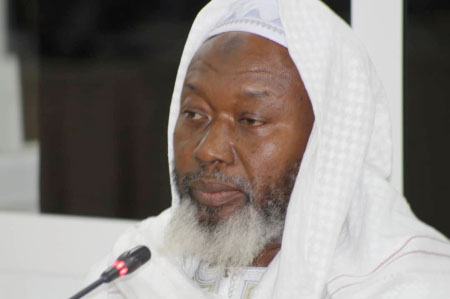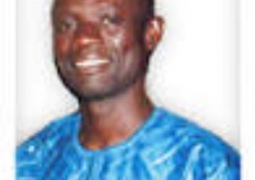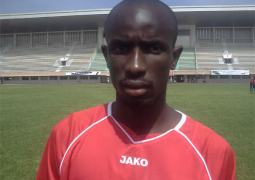
Former imam of State House and a member of
Supreme Islamic Council (SIC), Abdoulie Fatty, on Monday 17 Feb. 2020 appeared
before the TRRC to clarify issues in which he was adversely mentioned by
several witnesses.
Some witnesses claimed that his (Fatty)
comments had triggered their arrest, unlawful detention and torture by
former President Yahya Jammeh. He admitted before the TRRC that Supreme Islamic
Council (SIC) got powers from Jammeh to ban certain scholars from preaching.
However, prior to his testimony, Fatty was
reluctant to swear by the Qu’ran triggering some little misunderstandings
between him and lead counsel, Essa Mbaye Faal. This resulted
Born in Borayaa village, Imam Fatty is a
Master’s degree holder in Islamic Studies. He recalled that in August 1995, he
was appointed Imam
He said late Landing Sanyang was part of the
According to him, he was asked how much he
would want as a salary, but he told
He said his relationship with Jammeh was not
only limited to imam and a
"I once made a sermon in reference to
Yahya Jammeh but it was banned and it never came out on TV or radio because it
was not pleasing to him."
He added that not all of his sermons were aired
particularly the ones viewed sensitive. "I did not against Yahya Jammeh, I
advised him," said imam Fatty.
At this juncture, Faal reminded him that he
(Fatty) earlier told the commission that he was not an adviser to the former
president. But Fatty in reply said current President Adama Barrow has a
religious
On Supreme Islamic Council, he said late Alhagie Sorriba Gassama formed
the council after he had a tour across the entire country in 1992. He said Supreme
Islamic Council was formed because it was alleged that all the Arab monies
were going to the Madarasas and therefore they (
Continuing his testimony, Faal put it to him
that SIC is a private club because it has no legislative standing and had no
authority over any individual. However, Fatty rebutted the council does not do
any other thing than advising.
Fatty explained that even as an advisory body
it was established by
Counsel Faal further put it to him that SIC
was not a state
He said individuals in Islam must know what
to say and what not to. He added that they cannot let anyone misinterpret the
Qu’ran and the Hadith and thus mislead Gambians.
He cited a Hadith and interpreted it by
saying that if you see something forbidden, try and remove it with your hand or
preach about it or hate it in your heart. However, hating it in your heart is
the weakest.
Council Faal, however, put it him that SIC doesn't
have the mandate to use force on people.
"The application of force is only
applicable by the state. SIC was banning preachers they did not like,” Faal interjected.
Imam Fatty then clarified that the government
was not intervening on the side of
Mr. Fatty testified that if instructions came
from the president and it is not against Islam and would foster peace, he
averred, then there is no problem.
We should obey our leaders in Islam," he
testified. However, Faal put it to him that the instructions they executed were
Asked whether it was matter to him if instructions
from Jammeh were lawful or unlawful, Fatty told the commission to ask Yahya
Jammeh about that. But Faal put it
At this juncture, he was asked to look at a
statement and confirm whether it was
Fatty insisted that what they did was
However, Imam Fatty told the commission that
Fatty admitted that he did state that it was
the responsibility of SIC to unite Muslims to pray and fast on the same dates.
Asked whether Yahya Jammeh involved himself
in their work, he responded in the negative.
Mr. Fatty testified that the idea for all
Gambians to fast and pray with Makka on the same day did not emanate from Yahya
Jammeh. He added that Jammeh only tasked them to monitor and ban preachers.
In his further statement, he stated Yahya
Jammeh never interfered with their work.
According to him, Shia Muslims
Imam Fatty denied attacking or banning the
Shia Muslims in The Gambia. But it was put to him by Counsel Faal that it was
published in 2008 that
Fatty also told the commission that he was among
Gambian scholars who branded the Ahmadiyyas as ‘
Imam Fatty further testified that he never
stated that the Ahmadiyya should be taken to McCarthy Square and be killed.
According to him, he rather wanted to have a debate with them in 1997 at
McCarthy Square or Independence Stadium.
He accordingly admitted having said that
Ahmadis should be banned.



